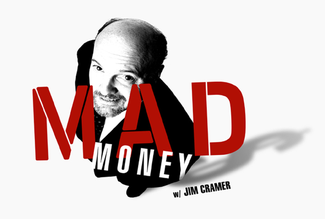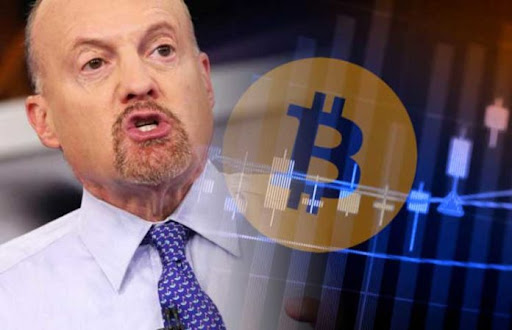Jim Cramer, the renowned market analyst, has weighed in on the upcoming market rally, offering a tempered forecast. Despite an anticipated upward trend, Cramer predicts that the market won’t touch its previous highs. This insight sheds light on various factors behind a moderated recovery and provides crucial strategies for investors. As economic dynamics shift, understanding these influences becomes vital for navigating the capped market rebound.
Jim Cramer’s Predictions for the Upcoming Market Rally

Jim Cramer has recently made headlines with his predictions for an upcoming market rally. Cramer believes that while the market will see a surge in the coming months, it will not reach its previous highs. Here are the key points from Cramer’s forecast:
- Moderate Gains Expected: Unlike earlier explosive rallies, Cramer foresees a more tempered increase in market valuations.
- Market Influencers: He points to factors like economic recovery post-pandemic, government interventions, and fluctuating consumer confidence as primary drivers.
- Sector Performance: Cramer suggests that sectors like technology and healthcare might spearhead the rally, given their robust performance metrics.
In summary, Cramer acknowledges an impending rally but with cautious optimism. He stresses that the heights achieved in previous bullish runs might not be attainable this time around. Investors should therefore brace themselves for modest but steady growth.
Factors Contributing to a Moderated Market Recovery

Jim Cramer notes several factors contributing to a moderated market recovery, emphasizing that while a rally is expected, the market may not reach its previous highs. Cramer’s insights include:
- Economic Indicators: Although some economic data points toward recovery, other indicators suggest cautious optimism. For instance, unemployment rates are improving, but wage growth remains stagnant.
- Inflation Concerns: Inflation has become a significant concern. Both consumer prices and production costs are rising, which could temper market enthusiasm.
- Federal Reserve Policies: The Federal Reserve’s approach to interest rates plays a crucial role. Cramer highlights that any aggressive tightening could stymie market gains.
- Geopolitical Risks: Global tensions, such as trade disputes and political instability, can impact market sentiment. Cramer believes these uncertainties contribute to a subdued outlook.
- Corporate Earnings: Fluctuating corporate earnings reports are another factor. Companies are facing challenges with supply chain disruptions and increasing operational costs.
Comparison of Key Factors
| Factor | Positive Impact | Negative Impact |
|---|---|---|
| Economic Indicators | Job growth improves | Wage stagnation persists |
| Inflation Concerns | Short-term consumer boosts | Potential long-term purchasing power decline |
| Federal Reserve Policies | Controlled inflation | Possible dampening market effects |
| Geopolitical Risks | None | High market volatility |
| Corporate Earnings | Recovery signs | Challenges like supply chain issues |
In conclusion, Cramer underscores that these factors collectively suggest a cautious yet hopeful market environment. Investors should remain vigilant and adaptable to navigate these complex dynamics.
Strategies for Investors Amidst a Capped Market Rebound

When the market shows signs of rallying but does not reach its previous highs, investors must adopt strategic approaches to maximize returns. According to Cramer, the following strategies can prove effective:
Diversification: Spread investments across various sectors to mitigate risk. Cramer emphasizes that relying on a single sector could be risky in a capped market.
Value Investing: Focus on stocks that are undervalued with strong fundamentals. This approach can provide stability and steady returns even if the market does not reach its old highs.
Dividend Stocks: Invest in stocks that offer consistent dividends. This can ensure a steady income stream despite limited capital gains.
Cash Reserves: Maintain a portion of your portfolio in cash. Cramer suggests this will provide liquidity to seize opportunities as they arise.
Regular Review: Periodically evaluate your investment portfolio. Adjust asset allocation based on market conditions and sentiment.
Comparative Strategy Table:
| Strategy | Risk Level | Potential Return |
|---|---|---|
| Diversification | Low | Moderate |
| Value Investing | Medium | High |
| Dividend Stocks | Low | Moderate |
| Cash Reserves | None | Low |
| Regular Review | Varies | Varies |
By using these strategies, investors can navigate a capped market effectively and ensure their portfolio is well-positioned for future gains.
Frequently Asked Questions
Who is Jim Cramer?
Jim Cramer is a well-known television personality, author, and former hedge fund manager. He is the host of CNBC’s "Mad Money," where he provides his insights on financial markets and investment strategies. Cramer is renowned for his energetic and often flamboyant style of presenting market analysis and stock recommendations.
What does Jim Cramer mean by “Rally In Coming Months”?
When Jim Cramer says "Rally In Coming Months," he is predicting that the stock market will experience a period of upward movement in the near future. This implies that he expects stock prices to increase over the coming months, offering potential gains for investors. However, Cramer is also cautious in his prediction, hinting that this rally might not be strong enough to push the market to previously attained high levels.
Why does Jim Cramer believe the market won’t reach its old highs?
Jim Cramer believes that several factors could prevent the market from reaching its previous highs. These factors might include economic uncertainties, inflationary pressures, geopolitical tensions, and changes in monetary policy. While he is optimistic about a rally, he suggests that these challenges could limit the extent of the market’s recovery.
Should investors follow Jim Cramer’s advice?
While Jim Cramer is a respected figure in the financial world, investors should always conduct their own research and consider their personal financial situation before following any advice. Cramer’s insights can be valuable, but market conditions are complex and multifaceted. Consulting with a financial advisor and diversifying investment strategies is generally recommended.





